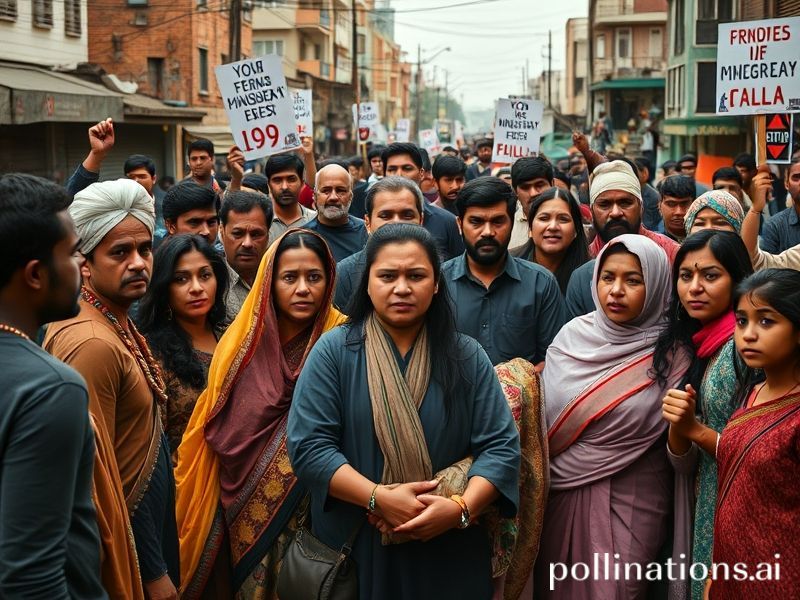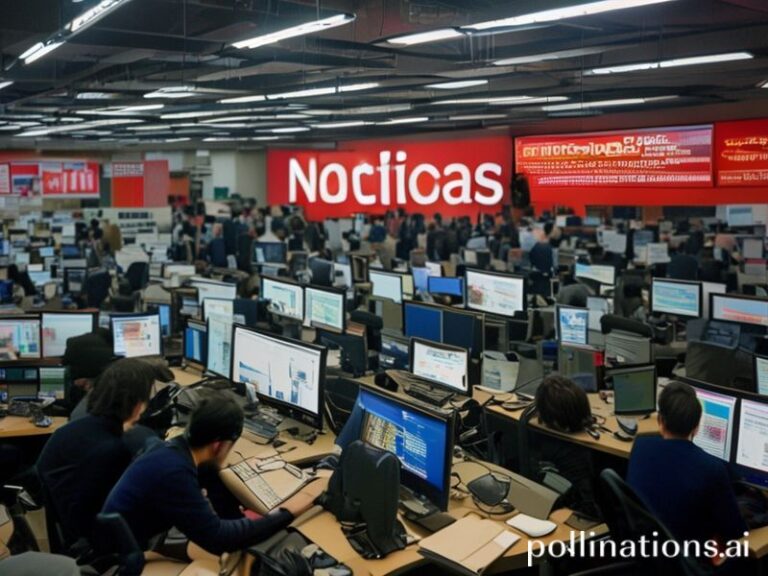Xenophobia: Why the World’s Fear of the ‘Other’ Is Trending Harder Than a Viral TikTok Dance
# **Xenophobia: Why the World’s Fear of the “Other” is Trending Harder Than a Viral TikTok Dance**
In a world that’s more connected than ever—thanks, internet—you’d think we’d be past the whole “fear of strangers” thing. But nope, xenophobia is making a comeback, and it’s trending harder than a viral TikTok dance challenge. From political rhetoric to social media echo chambers, the fear of the “other” is resurfacing globally, and it’s not just a buzzkill—it’s a full-blown cultural crisis.
### **Why Is Xenophobia Trending Now?**
1. **Political Rhetoric on Steroids**
Leaders around the world are leaning into us-versus-them narratives like it’s the new black. Whether it’s Brexit, immigration debates, or geopolitical tensions, politicians are weaponizing fear to rally their bases. And guess what? It works. Fear sells, and when fear sells, xenophobia trends.
2. **Social Media Echo Chambers**
Ever notice how your Twitter feed or Facebook timeline seems to only show you what you already believe? That’s the echo chamber effect, and it’s amplifying xenophobia. Algorithms feed us content that confirms our biases, creating a digital bubble where fear of the “other” thrives. It’s like binge-watching a horror series—except the monster isn’t under your bed, it’s in your newsfeed.
3. **Economic Anxiety**
When times are tough, people look for someone to blame. And who’s an easy target? Immigrants, refugees, or anyone who looks, sounds, or prays differently. Economic uncertainty fuels xenophobia because it’s easier to scapegoat than to tackle systemic issues. It’s the political equivalent of blaming your bad day on the barista who messed up your coffee order.
4. **Globalization Backlash**
Globalization promised a world without borders, but it also brought cultural clashes, economic disparities, and a sense of lost identity. Some people are pushing back, clinging to nationalism as a way to reclaim what they perceive as lost. Xenophobia becomes a tool to resist change, even if that change is inevitable.
### **Cultural Context: The “Other” Through the Ages**
Xenophobia isn’t new. It’s been around since the days of “us versus them” cave paintings. Ancient Greeks called non-Greeks “barbarians,” and the Romans feared the “uncivilized” tribes beyond their borders. Fast forward to the 21st century, and not much has changed—except now we have memes to spread the fear.
In the U.S., the “Yellow Peril” of the early 1900s morphed into the “Red Scare” of the Cold War, and now it’s the “Brown Threat” of Latin American immigrants. Europe’s refugee crisis has fueled anti-immigrant sentiment, while Africa and Asia grapple with their own internal xenophobic tensions. The “other” is always shifting, but the fear remains constant.
### **Social Impact: When Fear Goes Viral**
Xenophobia doesn’t just trend online—it has real-world consequences. Hate crimes, discrimination, and policy decisions rooted in fear can tear societies apart. It’s like a bad meme that won’t die: it keeps resurfacing, causing harm long after it should have faded into internet obscurity.
But here’s the thing: xenophobia isn’t just a problem for the “other” it’s a problem for everyone. Fear divides communities, stifles innovation, and creates a culture of suspicion. In a world that needs collaboration to solve global crises like climate change and pandemics, xenophobia is the ultimate buzzkill.
### **What Makes This Topic Significant?**
Xenophobia matters because it’s a litmus test for our collective humanity. In an era where misinformation spreads faster than a TikTok dance, we have to ask ourselves: Are we going to let fear dictate our future, or are we going to choose empathy? The answer will shape the world we leave for future generations.
So, the next time you see xenophobia trending, remember: it’s not just a hashtag. It’s a call to action. And the best way to combat it? By choosing connection over fear, understanding over ignorance, and unity over division. Because in the end, we’re all just humans trying to navigate this weird, wonderful, and sometimes scary world together.
—







